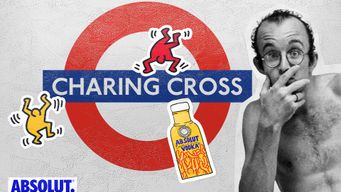Some traders use various unfair methods to make extra profit, sometimes by giving the impression of discounts. Some of the tricks that are used include the trader advertising a higher price or a fictitious previous price in addition to the "new" promotional price. Such practices prevent consumers from making informed choices and properly comparing the product options available to them.
To combat such deceptive methods, Hungary implemented stricter regulations aligned with Directive (EU) 2019/2161. Since May 2022, traders are required to provide clear and transparent price indications, particularly when applying discounts. For instance, they must display the lowest price from the 30 days preceding the discount, ensuring that the price reduction is genuine.
In 2023, the Hungarian Competition Authority (HCA) launched investigations into several online clothing and footwear retailers, including CCC, About You, and Answear. These companies were suspected of displaying multiple previous prices, potentially misleading consumers about the true value of discounts. CCC, a Polish retailer, was the first to resolve its case by cooperating fully with the HCA and committing to amend its pricing practices.
The investigation found that while CCC adhered to the 30-day rule, it also prominently displayed a higher "original" price, which in some cases was above the lowest price from the previous 30 days. This practice could confuse consumers about the real extent of the discount. In response, CCC committed to displaying only the current discounted price alongside the lowest price from the 30-day period prior to the sale.
CCC also agreed to cap the duration of its sales periods, limiting discounted products to a maximum of 60 days, or, if they reduce the price again, for a maximum of 60 additional days. CCC has also waived its right to display the lowest price 30 days before the first promotion if it has held multiple and continuous sales over a long period of time. This is important because if the discount period is too long, the discount becomes artificial.
The above practice may be interpreted as a limit to the application of another statutory rule, according to which when the price reduction is progressively increased, the prior price is the price without the price reduction before the first application of the price reduction. In other words, if the discount period is too long, traders will not be necessarily in a position to indicate the original price as prior price in case of multiple and continuous sales.
The HCA considered that the commitments offered by the company were an adequate remedy to the infringement and therefore closed the case without issuing an infringement finding. However, the fulfilment of the commitments will of course be monitored, and in case of non-compliance, the investigation may be re-opened.
CCC's willingness to adapt its practices highlights the growing importance of transparent pricing in protecting consumer rights and ensuring fair competition.


/Passle/5ca769f7abdfe80aa08edc04/SearchServiceImages/2025-12-11-21-58-26-997-693b3e82641ff44fb22be187.jpg)
/Passle/5ca769f7abdfe80aa08edc04/SearchServiceImages/2025-12-09-16-09-55-496-693849d32b43241fe162ee63.jpg)
/Passle/5ca769f7abdfe80aa08edc04/SearchServiceImages/2025-12-09-16-00-22-911-693847962b43241fe162e049.jpg)
